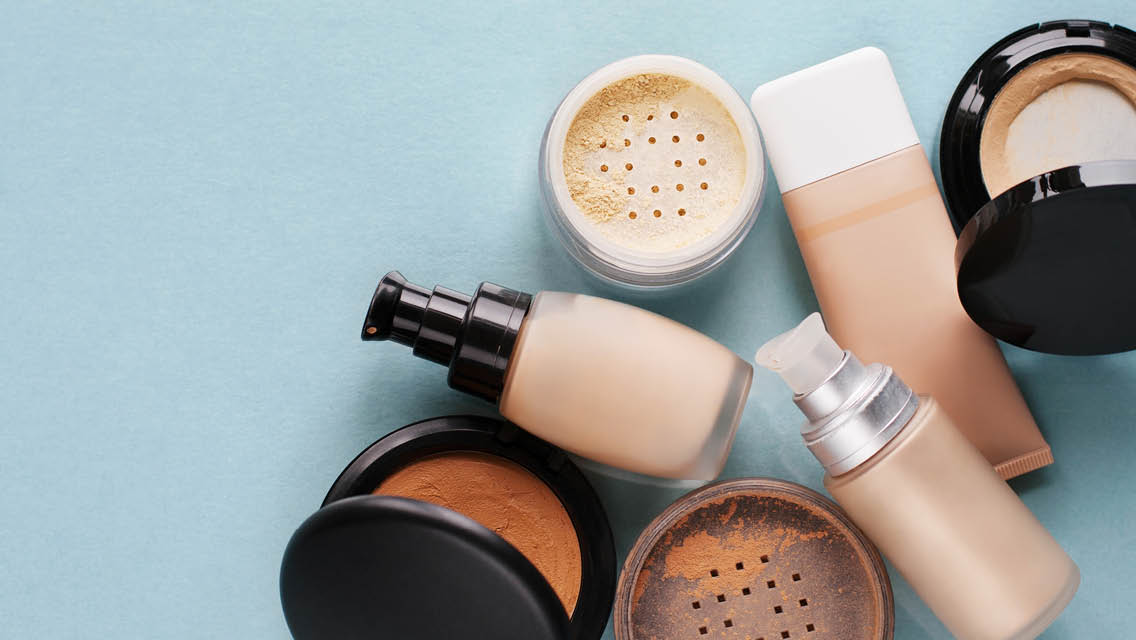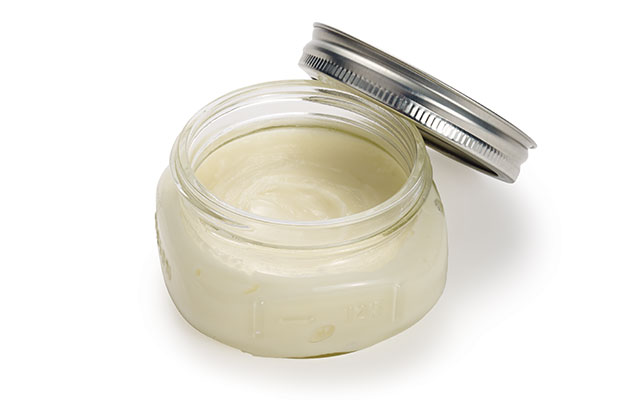Primer. Foundation. Highlighter.
Millions of people apply these cosmetics to their faces every day, yet few know what ingredients they contain. The Food and Drug Administration (FDA), which regulates countless other products, exercises only limited authority over makeup.
Although the FDA has expressed confidence that most cosmetics on the market are safe to use, its lack of oversight has raised concern in recent years. For example, in March 2019, the agency released a safety alert to consumers after finding asbestos in three talc-based cosmetic products sold by the retailer Claire’s, which markets jewelry, accessories, and makeup to teens and young adults. Claire’s had previously removed a number of makeup products from its shelves following a similar incident in 2017.
Talc, a soft mineral found in underground deposits, can give cosmetics a silky texture, prevent caking, and help absorb moisture. It’s often added to products like foundation, eye shadow, and blush. Yet the mineral has come under scrutiny for a possible connection to cancer, and additional problems arise when the talc used to make cosmetics has been contaminated with asbestos, a known carcinogen when inhaled.
Unfortunately, this contamination is not uncommon: Because talc and asbestos can be found in the same rock deposits, it can be difficult to isolate the two minerals during mining.
When the FDA issued its 2019 alert about Claire’s cosmetics, the company ultimately removed the items from its shelves — and the issue led some officials to bring cosmetics legislation to the fore. “While consumers should be both alarmed and outraged, it’s hardly a surprise, considering the federal law regulating the cosmetics industry has not been updated since 1938,” says Scott Faber, senior vice president for government affairs at the Environmental Working Group.
“I hope members of Congress finally recognize [that] the current system that has allowed the cosmetics industry to operate beyond the reach of the FDA’s authority must end.”





This Post Has One Comment
That is why Beautycounter is such a strong advocate for changing the laws. Visit their website to see the progress they have made and how to contact your congresspeople to support taking these harmful ingredients out of these products.